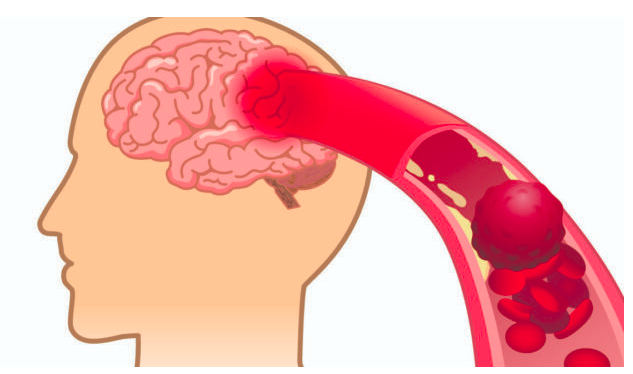Taking care of your health is more important than ever. In a world filled with information, staying informed about potential health risks can make a huge difference in your well-being. One critical issue that often goes unnoticed is clogged arteries, which can lead to serious conditions like heart attacks and high blood pressure. If left unchecked, these problems can be fatal. Fortunately, there are warning signs that can help you detect clogged arteries before it’s too late.
Here are 10 common signs of clogged arteries that you should be aware of to protect your heart and overall health.
1. Nausea
Nausea is a common symptom that can be caused by many different health issues, but it shouldn’t be ignored. While feeling nauseous doesn’t automatically mean your arteries are clogged, it’s a good idea to bring it up with your doctor if it becomes frequent or persistent. It could indicate underlying health problems, including issues related to your cardiovascular system.
2. Chest Pain
One of the most obvious signs of clogged arteries is chest pain, also known as angina. This occurs when the blood flow to your heart is reduced due to plaque buildup in the arteries. Chest pain typically starts at the chest or breastbone and can radiate to your left arm, shoulder, jaw, and upper back. If you experience chest pain, it’s crucial to seek medical attention immediately, as it could be a sign of a heart problem.
3. Shortness of Breath
If you’re finding yourself frequently short of breath, it could be due to clogged pulmonary arteries. While it’s normal to feel breathless after physical exertion, chronic shortness of breath is not and should be investigated. This symptom could indicate that your arteries are not allowing blood to flow properly to your lungs, requiring immediate medical evaluation.
4. Weakness or Numbness on One Side of Your Body
When blood flow is restricted or cut off in your carotid arteries, which supply blood to your brain, you might experience weakness or numbness, often on one side of your body. The carotid arteries run through the neck, and if they become blocked, it can lead to difficulty moving one side of your face, arm, or leg. This is a serious symptom that requires immediate attention.
5. Slurred Speech
If you’ve noticed slurred speech, it could be a sign that one of the arteries in your head or neck is blocked. This could be caused by a problem in the carotid artery, either in the branch that supplies blood to the brain or to the areas of the face and tongue. If this happens suddenly, it’s important to consult a healthcare provider right away as it could indicate a stroke or other serious issue.
6. Vision Problems
Sudden vision loss or blurred vision in one or both eyes can be linked to a blocked carotid artery. This artery carries blood to the brain and the eyes, and if it becomes clogged, it may impair your vision. If you notice any changes in your eyesight, whether it’s blurred vision or a sudden loss of vision, seek medical help immediately.
7. Leg Pain
Leg pain that occurs without an obvious injury could point to clogged peripheral arteries. These arteries carry blood to your legs, and if they become narrowed or blocked, it can result in pain or cramping in your legs, especially during physical activity. If you experience leg pain for no clear reason, it’s important to have it checked out.
8. Cold Feet
Feeling cold feet regularly, especially if you haven’t been in a cold environment, can be another sign of poor blood circulation due to blocked arteries. When your arteries are clogged, blood flow to your extremities, like your feet, can be restricted. If you notice this symptom frequently, it might be time to see a doctor.
9. Delayed Healing of Foot Injuries
If you notice that cuts or injuries on your feet take much longer to heal than they should, it could be due to poor blood circulation caused by blocked arteries. Proper blood flow is essential for wound healing, and when it’s restricted, the healing process can be delayed. This is another indicator that you may have issues with your peripheral arteries.
10. Heart Palpitations
Feeling like your heart is racing, pounding, or skipping beats can be a sign of irregular blood flow due to clogged arteries. Heart palpitations can occur for many reasons, but if they happen frequently or are accompanied by other symptoms like dizziness or shortness of breath, it could be a sign of a cardiovascular issue. If this happens, make sure to consult a healthcare provider to determine the cause.
What to Do If You Notice These Signs
If you experience any of the above symptoms, it’s important to take them seriously. Clogged arteries can lead to serious health issues, but recognizing the signs early can help you prevent further complications. Don’t wait until it’s too late—schedule a visit to your doctor to rule out clogged arteries or any other underlying health problems.
Disclaimer: This article is for informational purposes only and is not a substitute for professional medical advice. Always consult your doctor for accurate health assessments and advice.
By being proactive about your health and recognizing the signs of clogged arteries, you can take steps to improve your heart health and prevent potentially serious complications.

Sophia Reynolds is a dedicated journalist and a key contributor to Storyoftheday24.com. With a passion for uncovering compelling stories, Sophia Reynolds delivers insightful, well-researched news across various categories. Known for breaking down complex topics into engaging and accessible content, Sophia Reynolds has built a reputation for accuracy and reliability. With years of experience in the media industry, Sophia Reynolds remains committed to providing readers with timely and trustworthy news, making them a respected voice in modern journalism.
